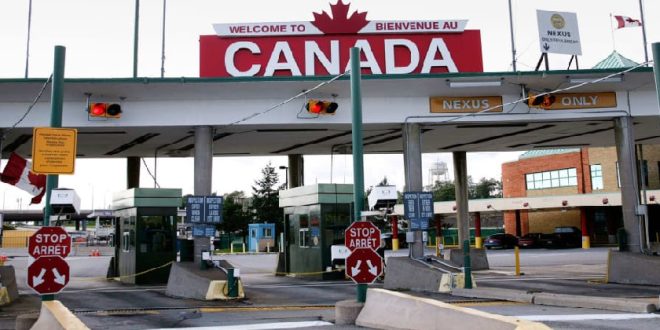11-12-2023
TORONTO: The dream of making it big in Canada is turning into a battle for survival for many immigrants due to the high cost of living and rental shortages, as rising emigration numbers hint at newcomers being forced to turn their back on a country that they chose to make their adopted home.
 Prime Minister Justin Trudeau has made immigration his main weapon to blunt Canada’s big challenge of an aging and slowing population, and it has also helped fuel economic growth. That drove Canada’s population up at its fastest clip in more than six decades this year, Statistics Canada said but now a reversal of that trend is gradually taking hold. In the first six months of 2023 some 42,000 individuals departed Canada, adding to 93,818 people who left in 2022 and 85,927 exits in 2021, official data show.
Prime Minister Justin Trudeau has made immigration his main weapon to blunt Canada’s big challenge of an aging and slowing population, and it has also helped fuel economic growth. That drove Canada’s population up at its fastest clip in more than six decades this year, Statistics Canada said but now a reversal of that trend is gradually taking hold. In the first six months of 2023 some 42,000 individuals departed Canada, adding to 93,818 people who left in 2022 and 85,927 exits in 2021, official data show.
The rate of immigrants leaving Canada hit a two-decade high in 2019, according to a recent report from the Institute for Canadian Citizenship (ICC), an immigration advocacy group. While the numbers went down during pandemic lockdowns, Statistics Canada data shows it is once again rising.
While that is a fraction of the 263,000 who came to the country over the same period, a steady rise in emigration is making some observers wary.
For a nation built on immigrants, a rising trend of people leaving Canada risks undermining one of Prime Minister Justin Trudeau government’s signature policies, which granted permanent residency to a record 2.5 million people in just eight years.
 Media spoke with a half a dozen people who have either left the country or are preparing to do so, because of the high cost of living.
Media spoke with a half a dozen people who have either left the country or are preparing to do so, because of the high cost of living.
Cara, 25, who came to Canada in 2022 as a refugee from Hong Kong, now pays C$650 ($474) in monthly rent for a single-room basement apartment in Scarborough in eastern Toronto, which is about 30% of her monthly take-home salary.
“I never realized that living in a Western country, you can only afford renting a room in the basement,” she said. She declined to give her real name because she fled Hong Kong after participating in the 2019 protests triggered by a now-abandoned extradition bill.
Cara works three part-time jobs, making Ontario’s minimum wage of C$16.55 per hour, and goes to an adult learning school to earn university credits.
“I almost use every single penny,” she said, while in Hong Kong she was able to save about a third of her monthly salary.
To be sure, emigration as a percentage of Canada’s overall population touched a high of 0.2% in the mid-1990s, and currently stands at about 0.09%, according to official government data.
While the numbers are small now, lawyers and immigration consultants warn that a pick-up could cast a shroud over Canada’s appeal as the one of the favored destinations for newcomers. (Int’l Monitoring Desk)
 Pressmediaofindia
Pressmediaofindia




